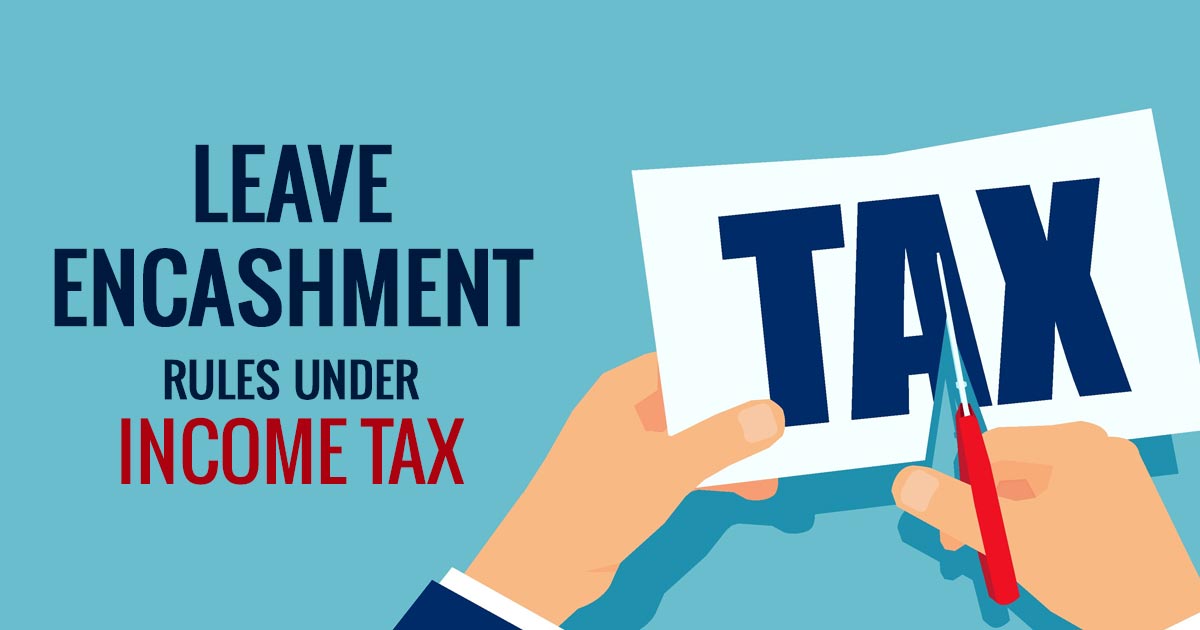
All employees are qualified to claim a specific number of paid leave every year. The paid leaves come under the incentives offered by the employers to join that company. The income tax laws permit the exemption for encashment of these paid leaves partly as well as fully.
Leave and Encashment Sorts
The leaves on which the employees are qualified might be of a distinct type to meet the said requirements such as sick leave when the employee gets ill, casual leave to meet emergencies and to take care of the demands at home, and privileged leave to spend time with family members either on holidays or at home.
Rather than breaking the overall entitlement of leaves of these sorts, some companies permit some days of paid leave as all consolidated leaves. An individual would not carry forward unclaimed sick and casual leaves however they are permitted to carry forward the privileged leaves.
Some companies have a specification for the whole cap on the number of days of leave that one would take forward but these unclaimed leaves would get lapsed if the number crossed after a specified limit. From the total number of carried forward leave some employers permit you to encash a part of your carried forward leave while others would not permit you the same.
Continuance of the employment and leaving the job allows the employees to encash their leaves. Employees might leave the company on arriving at the age of superannuation or might resign before reaching the mandatory retirement age.
Leave Encashment While Shifting the Job
The amount obtained on leaves encashment to all government employees working for the central government or a state government are fully exempt in their hands without any financial threshold or restraints as to the number of days leave encashed. The same tax exemption is available if the employee leaves the government service on arriving at the age of superannuation on resignation before the retirement age.
For those who do not work in government departments, there are limitations up to which the employee is qualified to obtain the exemption for the leave encashed. For these employees, there is a threshold of 10 months of leave irrespective of the prescribed period of service leave encashment inside which exemption is present. Towards the limitation as to the number of days, there is a whole cap of Rs 25 lakh in fiscal terms up to which the amount of leave encashment gets exempt.
You should note that the limitation is on the exemption and not on the right of the employee to get encashment of the leave. If the employer allows full encashment of leaves standing to your credit during the time of retirement then you would be required to furnish the tax on the surplus amount that comes beneath the exemption. To calculate the exemption the salary taken by the employee in the last 10 months during the time of retirement would be acknowledged.
The same might be effective in that even the employees working in the government firms are qualified for availing the exemption of gratuity however no exemption would be given for the encashment of the leave.
The government dept working people like railways, government hospitals, revenue department, etc. are qualified for a full exemption for leave encashment however during the similar duration the employees of municipalities, public sector companies like banks, life insurance corporations of India, and other company-owned via government would be qualified towards leave encashment for 10 months salary when that same would also come beneath the boundary of Rs 25 lakh.
The above-said exemption is also for the entitlement to the earned leave by the employee must be bounded to 30 days of leave for each year of services induced beneath the same employer. Hence when the employer permits you an exemption leave above 30 days for every service year then the privilege for the encashment of the collected leave during the identical time of the retirement is not available.
The amount of privilege for the leave encashment available for every employer however is available for your complete time duration of employment beneath one or more employers. Thus when you avail of the exemption for leave encashment in the former time, the amount of exemption present for you must be limited to Rs 25 lakh as diminished by the exemption which was availed before.
Leave Encashment While Job Servicing
Some employers would not enable their employees to accumulate leave beyond a specific number of days however they permit the employees to claim the half encashment of the collected leave in continuance of their service.
The Income-tax laws are related to the exemption for encashment of leave available when the cash is equal to the collected leave furnished to the employee when he leaves his employment. However, there would be no tax exemption available for the leave encashed in the continuance of employment with the identical employer.










After retirement leave encashment to state and central government employees are fully exempted. But in the case of non-government employees, like Bankers, this is only partially exempted. Is this not injustice?
In the case of Government employees, Leave Encashment is fully exempted but in the case of employees other than government, it is Exempted partially only.
whether leave encashment received by employees of Maharashtra Jeevan Pradhikaran at the time of retirement is fully exempt ?